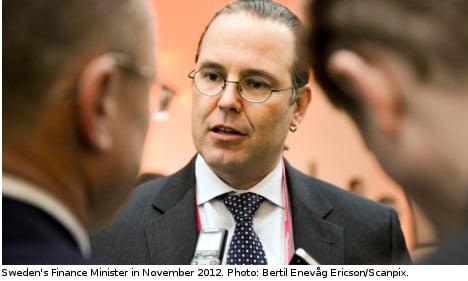“We’re in a five- to ten-year period of reform. The authorities will be quite heavy-handed with the banks in order to lower Swedish households’ indebtedness,” he told assembled bankers and journalists.
“We will tighten the rules so the banks take fewer risks. That will of course mean lower profitability for the banks.”
Echoing rating agency Moody’s analysis on Monday, Borg said Swedish banks’ reliance on the health of foreign currency presented a risk.
“(Riksbank head) Stefan Ingves has mentioned the possibility having some kind of capital reserve demand,” Borg said.
When questioned, Borg refused to detail other areas for possible future regulations.
He instead referred to the ongoing work of the Financial Crisis Committee (Finanskriskommittén), headed by Thomas Franzén, which intends to deliver its assessment in May 2013.
Meanwhile, the Riksbank published its autumn risk survey last week after speaking with the Swedish banks.
“Some also say that the uncertainty over the design of the new regulations has caused the market to take a more wait-and-see stance, and that the coming regulations have already affected market pricing,” the summary read.
Ann Törnkvist



 Please whitelist us to continue reading.
Please whitelist us to continue reading.
Member comments